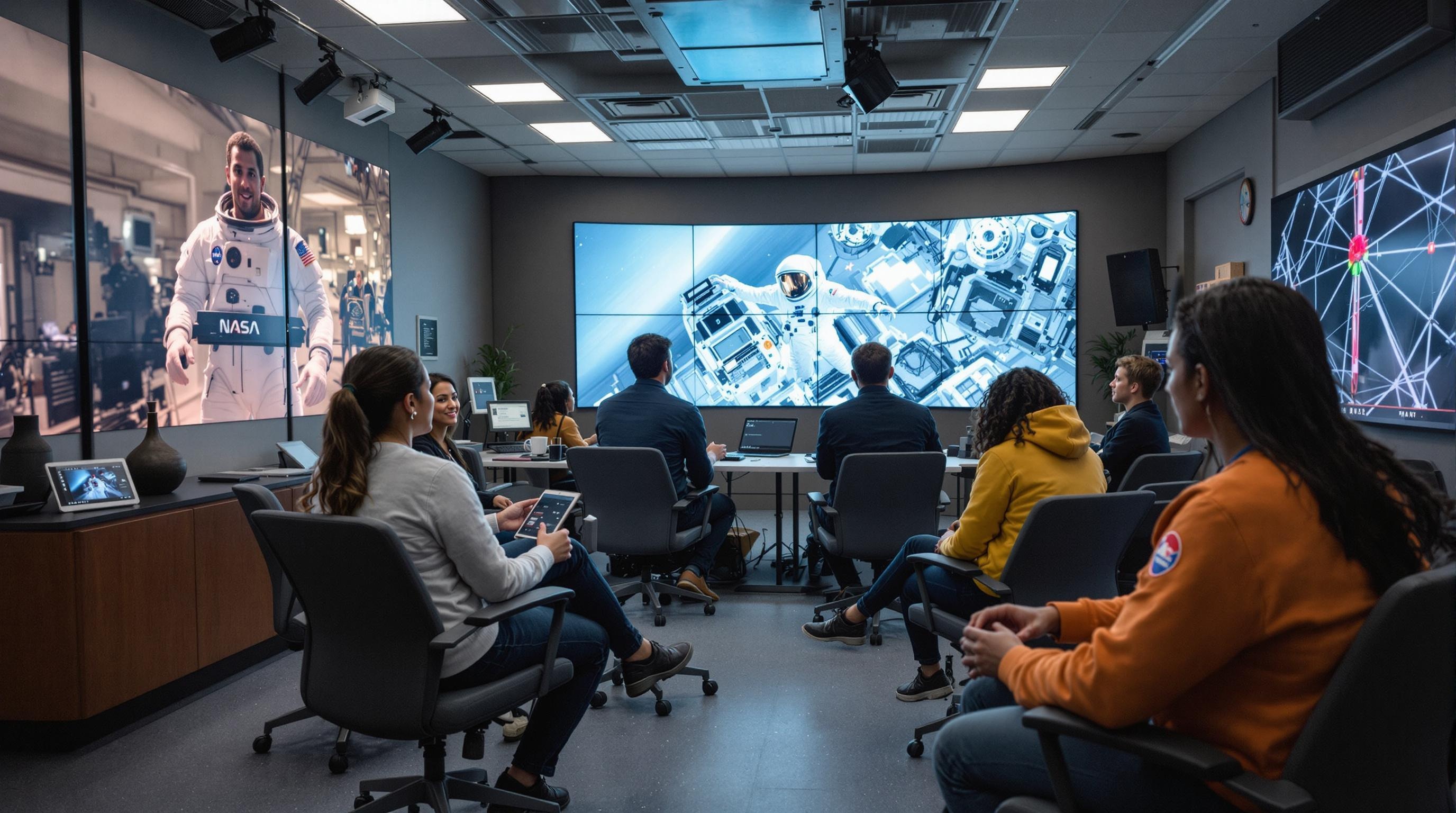A paraprofessional assists teachers in the classroom by supporting instruction, managing student behavior, and helping with lesson plans. They work with small groups or individual students, uphold school rules, and perform clerical duties. Paraprofessionals also assist students with special needs, track attendance, and operate standard office equipment under a teacher’s guidance.

What Is a Paraprofessional
A paraprofessional works with a classroom teacher to help students learn. They support instruction, assist with lesson planning, and help during classroom activities. Paraprofessionals are also responsible for supervising students, preparing teaching materials, and helping manage behavior.
They are commonly employed in elementary, middle, and high schools. The role includes working with individual students or small groups, especially those who need extra support. Many paraprofessionals assist students with special needs or limited English skills.
Common tasks include:
- Helping teachers deliver lessons
- Managing classroom and teaching materials
- Taking student attendance daily
- Keeping a safe and welcoming environment
- Using educational software to support instruction
Key Paraprofessional Responsibilities
Paraprofessionals complete many tasks to keep the classroom organized and effective. Their top responsibilities include assisting with classroom lessons and maintaining student safety. They help during lesson planning sessions, prepare learning tools, and follow the teacher’s guidance closely.
Core responsibilities:
- Assisting teachers in lessons and activities
- Supervising during lunch, recess, and transitions
- Supporting co teaching lessons
- Helping students understand new concepts
- Tracking students’ progress with notes or logs
They also:
- Follow and uphold school rules
- Support students with physical needs
- Use standard office equipment
- Maintain a professional manner
- Respect and follow the direction of the teacher
Paraprofessionals play a key role in providing students with a stable and supportive classroom environment.
Required Education and Skills
Most schools require paraprofessionals to have a high school diploma. Some states also ask for additional training or passing a competency test. Schools may prefer candidates with a bachelor’s degree or those trained in first aid and CPR certifications.
Key skills for paraprofessionals include:
- Strong interpersonal skills
- Ability to follow written and spoken directions
- Patience with young learners
- Ability to assist students with different learning needs
- Skills in using computers and educational software
Paraprofessionals who work with special needs students need extra training. They also need to handle physical tasks, such as lifting or moving students with disabilities.
Daily Tasks and Classroom Duties
Paraprofessionals do more than help teach. They keep the classroom running by doing many behind-the-scenes tasks.
Daily duties often include:
- Taking student attendance
- Preparing lesson plans and printed materials
- Helping teachers organize the room
- Reviewing and checking classwork
- Providing help during lessons for individual instruction
Paraprofessionals also:
- Lead small groups in reading or math
- Guide students during activities
- Operate equipment such as projectors or laptops
- Make sure students follow school rules
- Support in extracurricular activities
They may also prepare reports and do clerical duties like filing, copying, and scheduling.
Working with Students One-on-One or in Groups
Paraprofessionals work closely with students. They often support learners who need more help understanding material. This includes students with learning differences or limited English.
They often:
- Give individual instruction during class
- Lead small groups on focused tasks
- Repeat or explain new concepts
- Help students stay on task and reduce distractions
- Provide physical support for students with mobility needs
Compassionate paraprofessionals make a big difference in a student’s school experience. They also help teachers by giving more time and attention to each student.
School Involvement Beyond the Classroom
Paraprofessionals also help outside of class. They assist during school functions, communicate with parents, and help enforce school rules across the building.
Outside tasks include:
- Helping with bus duty or arrival and dismissal
- Aiding in counseling parents during conferences
- Attending meetings and training sessions
- Supporting students in extracurricular activities
- Performing other duties requested by staff
They are important members of the support personnel in every school.
Salary, Work Settings, and Job Outlook
Paraprofessionals work in public and private schools. Many are full-time, while others work part-time. Most positions follow the academic calendar.
Job demand is high due to growing class sizes and student needs. The U.S. Bureau of Labor Statistics notes over 1 million paraprofessional jobs in the country.
Paraprofessional Salary and Job Duties Overview
| Job Title | Avg. Salary (USD) | Required Education | Key Responsibilities | Common Settings |
|---|---|---|---|---|
| General Paraprofessional | $30,500/year | High School Diploma | Assisting teachers, supervising students | K–12 classrooms |
| Special Ed Paraprofessional | $34,200/year | Diploma + Training | Helping special needs students, tracking progress | Inclusive classrooms |
| Bilingual Paraprofessional | $32,800/year | Diploma + Language Test | Translating info, supporting classroom teacher | ESL classrooms |
| Early Education Aide | $28,700/year | High School Diploma | Helping young children, supporting learning | Preschool settings |
| Title I Paraprofessional | $31,400/year | Diploma + Assessment | Supporting at-risk students | Title I programs |
Source: U.S. Bureau of Labor Statistics, 2024
Paraprofessionals support teachers, students, and schools. Their role is vital in ensuring learning happens smoothly and fairly.
Most Popular Questions About Paraprofessional Job Description
These are the questions we get asked most often about the paraprofessional job description.
What are the main duties of a paraprofessional?
Paraprofessionals help teachers, supervise students, and assist with classroom lessons. They also help with lesson plans, keep track of student attendance, and work closely with individual students.
Do paraprofessionals need certifications?
Some jobs require only a high school diploma, but others ask for a bachelor’s degree or specific training like CPR certifications. Some districts also require passing a skills test.
Can paraprofessionals teach on their own?
No. Paraprofessionals help with co teaching lessons and support teachers, but they do not lead classrooms without a certified teacher.
What kind of students do paraprofessionals work with?
They help all types of students but often support special needs students, students learning English, or students who need individual instruction or behavior support.
Are paraprofessionals involved in school events?
Yes. They often help with school functions, assist in extracurricular activities, and sometimes attend meetings to help with counseling parents or report progress.







